The Travellers Situation
Tash [alan lodge] | 30.05.2005 22:17 | Culture | Repression | Social Struggles
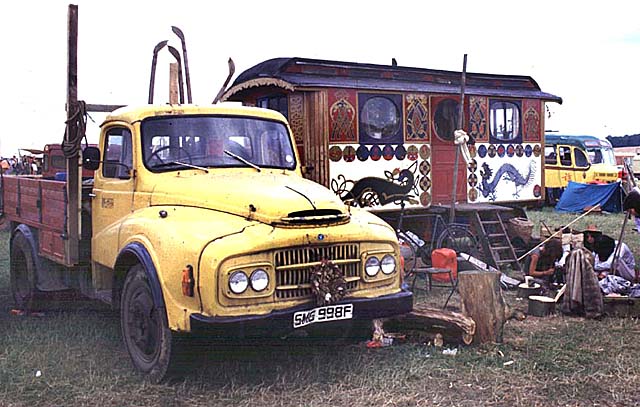
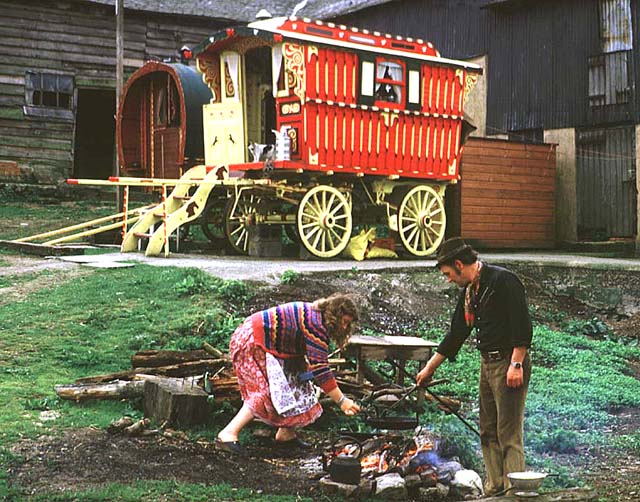
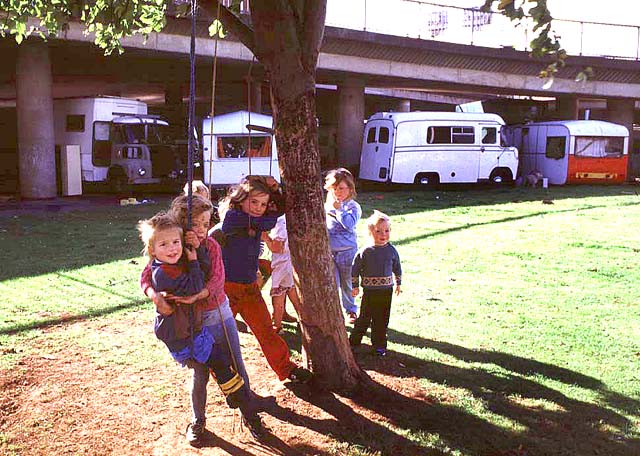
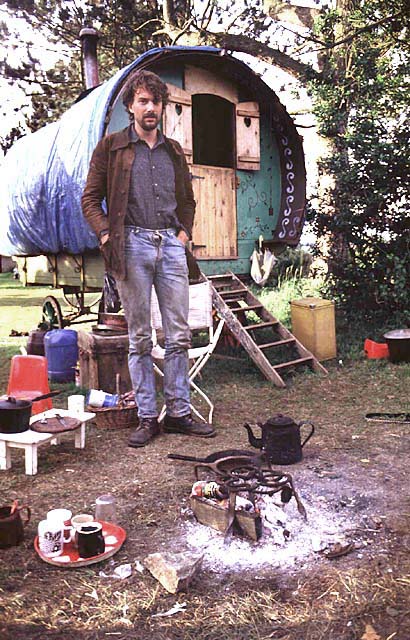
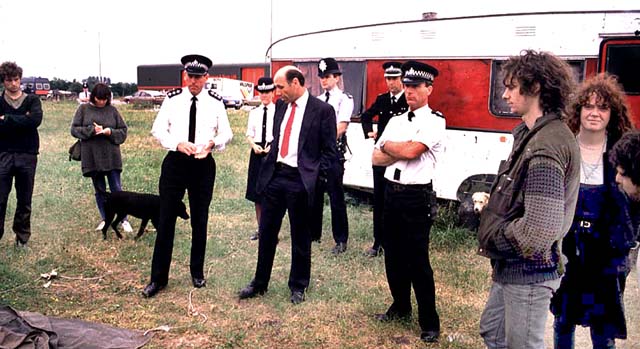
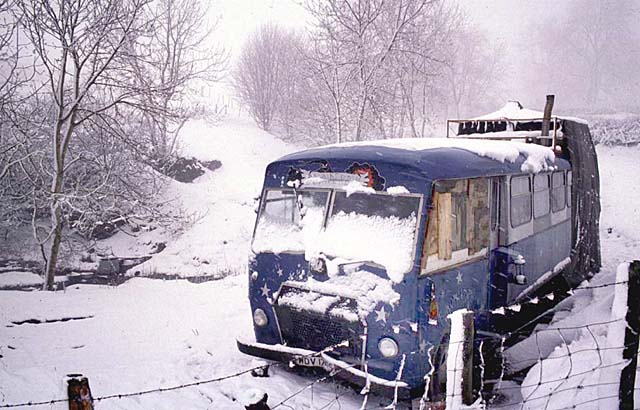

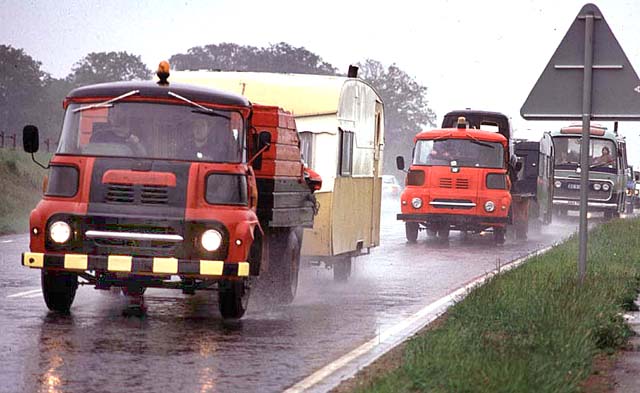
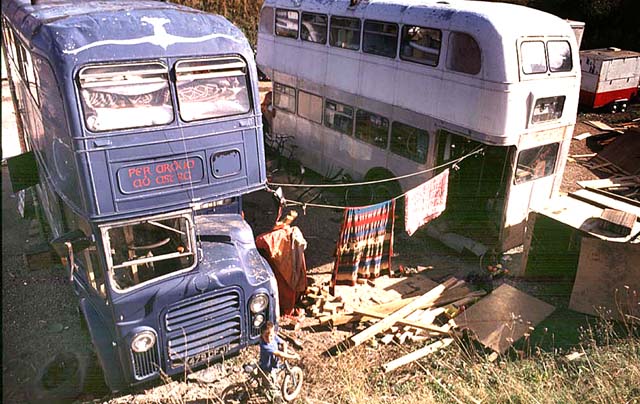
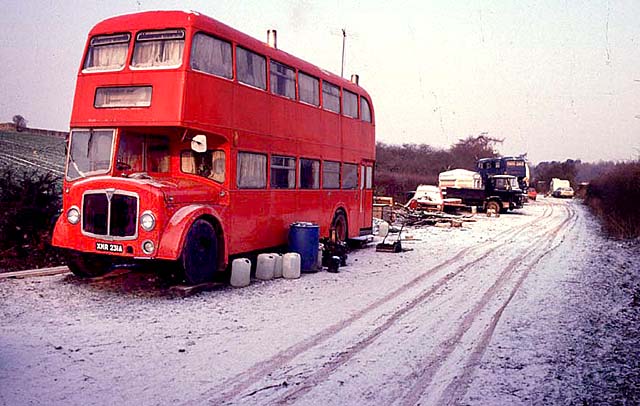
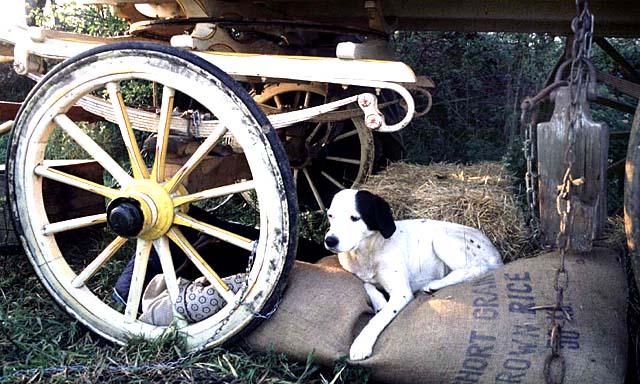
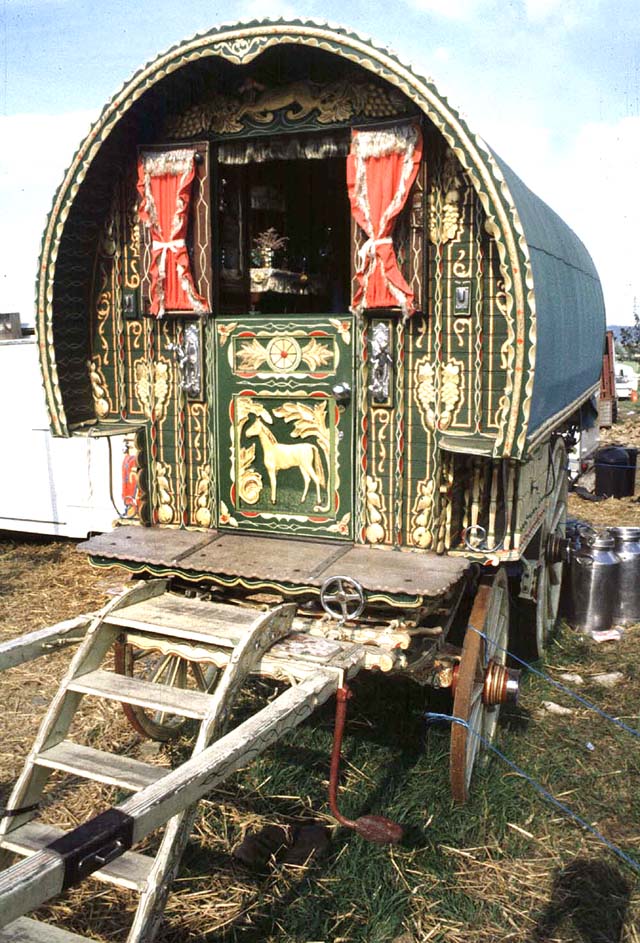
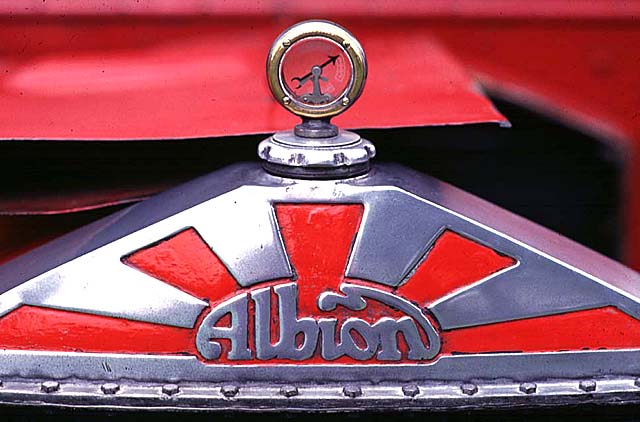

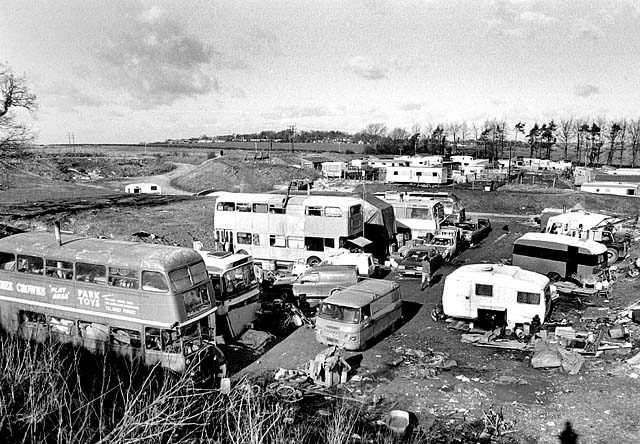
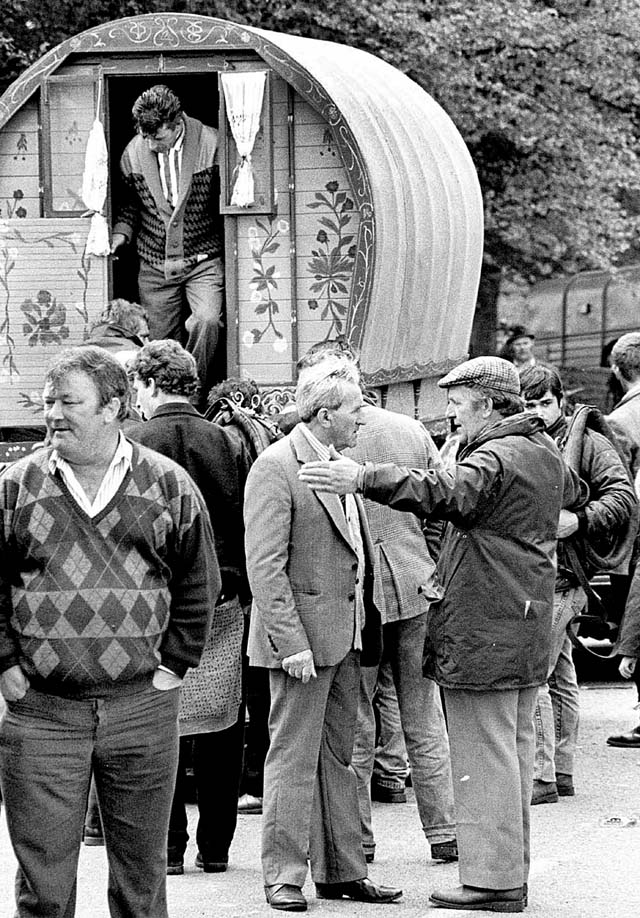
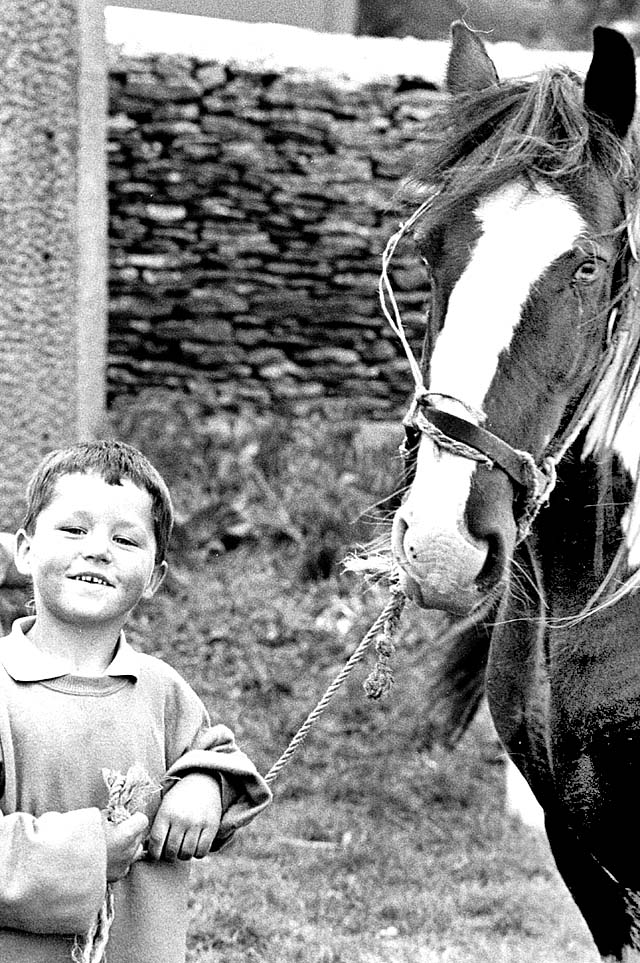
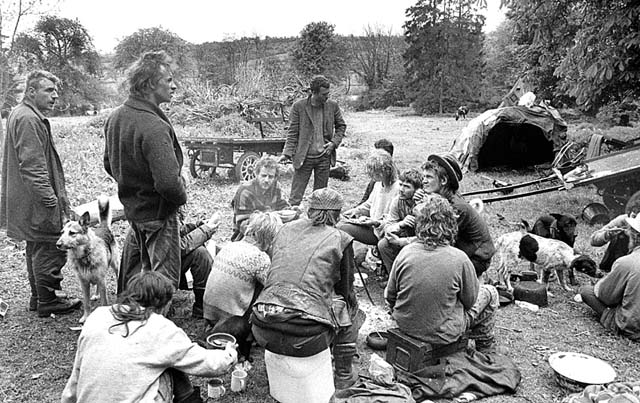
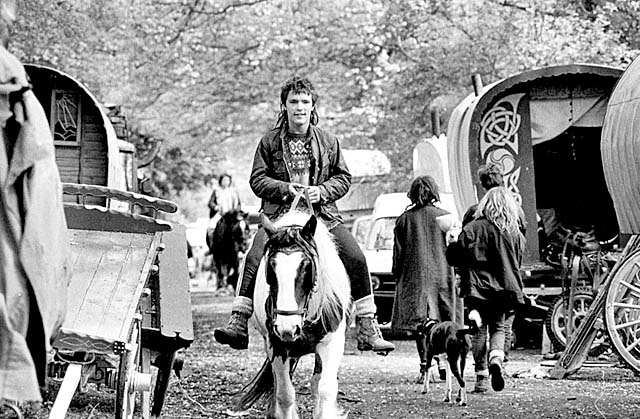
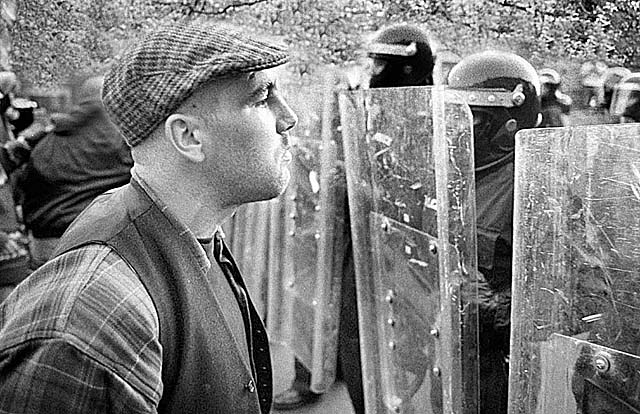
Here's a story.
There's a traveller sitting beneath an oak tree on a piece of land.
The owner comes up to him, in a threatening manner and says:
Get off my land!
What makes it your land?
My father gave it to me
And what made it his land?
His father gave it to him
And what made it his land?
His father fought for it
Right says the traveller, rolling up his sleeves,
I'll fight you for it then..!!
Travellers come in many styles and ethnic backgrounds
'twas always thus!
But similarities far outweigh differnces, in peoples expectations on what they want out of life. Recently, politics has come crashing through the door, and started to trample their boots, all over the usual suspects of , travellers, asylum seekers, migrants, and the rest .......! they make few distictions and just see us as 'gooks' of the same sort, that need similar control. There are some votes to be had by ever strengthening controls over gathering, both in public order & planning.
I say similarities far outweigh differnces. They make their living in many ways. Some are mechanics, electricians or carpenters while many provide casual labour for agriculture and building sites (both now in less need of such labour). Many are skilled at crafts and make jewellery, pottery and paintings to sell at markets. Others run cafes, stages and sound systems at Festivals and Raves. Recycling waste and scrap is a favourite, but now made more difficult by the 1990 Environmental Protection Act, which makes taking items from skips an offence and `scrapping' illegal without a carriers licence.
Travellers have been persecuted throughout Europe for over 900 years. In England during Elizabethan times, being or associating with a Gypsy was a capital crime. In Nazi Germany, hundreds of thousands were killed in the "Holocaust". After the war, Travellers rights were never enshrined in European law and they continue to suffer racial discrimination in most EEC countries. The attitude which enabled this to take place was rooted in the Great Depression where along with the Jews and other minorities, the Gypsies became convenient scapegoats. The current shift towards right wing ideology across Europe is producing a new backlash.
Historically, Travellers played an important economic and cultural role as horse traders, mobile agricultural workers etc. Since 1945, the transformation of farming into a highly mechanised agri-business has greatly reduced the opportunities for such work and reduced the number of farmers who provide temporary sites.
The greatest single issue facing travellers is the lack of sites. Places that they can stay, even for a few days, without the threat of being moved on. Successive governments have pursued a policy of assimilation where travellers have been encouraged to move into `Bed & Breakfast', flats or permanent concrete sites. In the 1950's & 60's, the highways & By-ways Act, Caravans Act and the Commons Registration Act, removed rights of access to Commons, verges and By-Ways which had been used by travellers for centuries. The development and urbanisation of much of our countryside has also reduced the number of traditional stopping places.
The 1968 Caravan Sites Act was an amendment to the 1960 Act and was always inadequate in meeting Travellers needs. It requires councils to provide sites for travellers siding in or resorting to their area". Currently half the councils in England and all of those in Wales, fail to meet the minimum statutory requirements. Local authorities who provide sites are given the status of "designated areas". This means that where travellers occupying any land can be summoned and fined in a magistrates court. Central government has increasingly pressured councils to use designation as a means to "deal with the problem". Travellers regard designation as the equivalent of the South African Pass Laws, since it effectively defines areas where no travellers are legally allowed to be.
The Conservatives "Free Market" policy does not extend to the provision of sites for travellers. They propose to tighten Planning Laws to make it difficult for sympathetic landowners to set up private sites or festivals. Travellers who buy land face the same problems despite the apparent ease with which large areas are turned into motorways, golf courses, theme parks or shopping centres.
The divisive social and economic policies of the 80's created an alienated under-class which led to some travellers sites becoming refugee camps for those without a `safety net'. travelling or squatting are among the few viable options for those who might otherwise end up living in a cardboard box.
The sheer volume of people who have adopted the lifestyle as an alternative to the recession, has further strained relationships between the state, the wider society and the various travelling communities. The situation has reached crisis point, with little sign of any negotiation, compromise or reconciliation.
Travellers are not protected by the Race Relations Act and are subject to the kind of abuse from the tabloids which would be considered outrageous if directed at ethnic groups or religious minorities. This type of coverage is extremely irresponsible and does nothing but encourage fear, ignorance, intolerance and vigilantism. Journalist seem preoccupied with finding `confrontations' and they continue to perpetuate the cliche image of the `crazed Hippy'.
The Travellers did not land from Mars. Most have paid taxes along with generations of their ancestors who "fought and died during the war". Many do not sign on the dole and many more take seasonal or full-time work when available. Although, it is extremely difficult for them to keep a job when they have no sites to live on and are constantly being evicted. The governments new measures will make life more difficult for homeless people as well as travellers and put further pressure on people to resort to crime to survive.
Most travellers are non-violent people who resent the image promoted by the press. They take pride in their homes, most of which are completely legal. Some have given up mortgages and sold their houses to buy buses or trucks worth thousands of pounds.
Their festivals are cultural events which provide entertainment and a public meeting place for thousands of people from the cities. there is a huge demand for such free events and a lot of inner-city problems could be solved by allowing people to come out into the countryside and have a good time. There are many tracts of land where festivals could take place, but continuing refusal by the authorities to meet this demand results in unplanned events happening in unsuitable places, with unfortunate incidents involving noise, dead sheep and irate farmers.
Such gatherings formed a focal point for our culture from the before 2000BC until the time of the witch hunts. In Africa and India, festivals are still part of the fabric of society with events such as the "Kumbha Mela", which attracts 15 million people. Those who restarted the festivals at Stonehenge believed that this tradition should have a place in contemporary society.
The authorities cite problems with theft, violence or drugs to substantiate their position. However, there is no more drug use amongst travellers than amongst many other sections of society. Drugs are in fact, freely available in almost every town and city in the country and it is not the prospect of scoring which attracts people to the festivals. The threat of theft or violence has been blown out of all proportion to a the actual number of instances.
It is not only New-Age Travellers festivals which are now under threat, but Traditional Travellers' Fayres which have taken place for centuries. The Appleby Horse Fair in Yorkshire was granted a Royal Charter in the Middle Ages, but recently, wealthy landowners have attempted to obtain injunctions on surrounding land in a campaign to have the event stopped.
These are not the only problems travellers face, they often find it difficult to obtain basic health-care and their children are frequently unable to gain admission to schools. They are subjected to illegal evictions and attacks by farmers or vigilantes, who have been known to burnout their homes and to, contaminate sites with pesticides and slurry. Having no fixed abode, they are routinely excluded from the electoral register.
In short, there is a need for the whole question of travellers rights to be comprehensively reviewed For a start, the Criminal Justice Act needs instant repeal.
The police frequently try to operate laws, well beyond their powers.
SURVIVAL
The Travellers' situation
"I like living in a caravan,
am I such a terrible thing.
I dare to be different.
Now that is a terrible thing".
Charlie Smith
When Jack Straw claimed that there has been "too much tolerance of travellers", he declared open season on some of Britain's most vulnerable people. Soon after his remarks were publicised, caravans in which children were sleeping had their windows stoved in with bricks. A truck in which travellers had made their home was set alight. Police have attempted summary evictions without regard for the law.
There is nothing new about vigilante attacks on travellers. Incidents from the past few years: of shotguns being fired into caravans at night, of petrol bombings, of travellers' dogs being blinded with sharp sticks and of the police taking advantage of public indifference to beat the living daylights out of innocent people. It was not hard to predict that Mr Straw's comments were likely to validate and encourage such assaults. But the Home Secretary has discovered that Middle England loves him for hating travellers.
The government will be hard put to make life for travellers in Britain much worse. Since 1994, local authorities have enjoyed new powers to remove them from places in which they have camped without the owner's permission. Unless the campers comply with the eviction orders "as soon as practicable" they will be committing a criminal offence.
While councils were armed with a legal duty to evict travellers, they were relieved of the legal duty to accommodate them. The 1968 Caravans Act, which obliged local authorities to find sites for migratory people, was repealed, and new regulatory barriers were raised to discourage voluntary attempts by councils to make room for them.
Officially, the Labour government is committed to a policy of respect for travellers. "A nomadic way of life is legitimate," Home Office guidelines insist. "Gypsies and Travellers should be accommodated and 'tolerated' wherever practicable". But the guidelines have no legal force. Mr Boateng's announcement appears to presage the removal even of this feeble protection.
Migratory people have been living in Britain since the Palaeolithic. They have been persecuted for centuries. A law passed in 1554, establishing that anyone found to be either an "Aegyptian" or "pretended Aegyptian" could be executed, stayed on the statute books until 1789. Travellers, remarkably, survived, and they also survived the persecution and enclosure that followed the repeal of that act. It was not until Margaret Thatcher came to power that their complete extermination became possible.
A study by the Community Architecture Group shows that, in the counties it surveyed, 67 per cent of traditional travellers' sites disappeared between 1986 and 1993. Some of them had provided shelter for thousands of years: this was perhaps the longest continuous land-use of any kind in Britain. While the old stopping places were sealed off, there was no means of establishing new ones.
When it repealed the Caravan Sites Act, the Home Office told travellers that they should set up their own sites. They had been trying to do just this for years but, as the government knew perfectly well, the great majority had been refused planning permission. In the few cases in which local authorities allowed them to stay, central government overturned their decisions.
What this means in practice is that travellers are, once more, constitutionally criminal. Their very existence is illegal. They are criminalised just by occupying physical space! Without lawful places to stop, they can be hounded from county to county and evicted wherever they pull up. Even the generous landlords who allow them to stay on their property have been threatened with prosecution. The Labour government, like the Tories, is pursuing a straightforward policy of assimilation. People who do not conform to social norms, who are, in other words, not like us, are forced to lose their alternative identity and live like everyone else. If they refuse, they become criminally different. The policy is justified by repeated allegations of villainy, though the Home Office is unableto point to any research showing that travellers as a group are worse than the rest of us.
The government's policy appeals to the worst instincts of Middle England: its complacency and vindictiveness, its closing of ranks against the outsider, its intolerance of understanding and compassion. We know only too well, kicking the poor and weak has always played well with the prosperous.
@@@@@@@@@@@@
"I love this bus
That I call my home
I dig this coach
That allows me to roam
My little space
That can take me any place
My sanctuary
No matter where I be
And when I know that she’s ready to go
And a time to travel’s dawning
Reaching, to start her heart
She turns, she breaths, she fires, she vibrates gently
We move into the morning
Wondering whence we do depart
Knowing that there’s nothing wrong with where I am
Some folk simply do not understand."
@@@@@@@@@@@@
Yet another attempt at anti-traveller law, on the horizon
 http://indymedia.org.uk/en/2005/04/308604.html
http://indymedia.org.uk/en/2005/04/308604.html [this is about current, new law proposals now; Ten Minute Rule Bill titled: "Equal Enforcement of the Law"]
&
Anniversary of the 'Battle of the Beanfield': an exhibition 'Operation Solstice'
 http://indymedia.org.uk/en/2005/04/308800.html
http://indymedia.org.uk/en/2005/04/308800.html One Eye on the Road {tash's site}
 http://tash.gn.apc.org
http://tash.gn.apc.org Friend and Families of Travellers:
 http://www.gypsy-traveller.org
http://www.gypsy-traveller.org Gypsy Council:
 http://www.thegypsycouncil.org
http://www.thegypsycouncil.org Patrin:
 http://www.geocities.com/Paris/5121/patrin.htm
http://www.geocities.com/Paris/5121/patrin.htm ____________________________________________
ALAN LODGE
Photographer - Media: One Eye on the Road. Nottingham. UK
Email:
 tash@gn.apc.org
tash@gn.apc.org Web:
 http://tash.gn.apc.org
http://tash.gn.apc.org WAP phone
 http://wappy.to/tash
http://wappy.to/tash My Blog
 http://tash_lodge.blogspot.com
http://tash_lodge.blogspot.com BroadBand
 http://tash.dns2go.com
http://tash.dns2go.com Member of the National Union of Journalists [No: 014345]
____________________________________________
"It is not enough to curse the darkness.
It is also necessary to light a lamp!!"
___________________________________________
OS Grid Ref: SK 575414 - Lat/Lon: 52:58:03N, 1:08:38W
Tash [alan lodge]
 e-mail:
tash@indymedia.org
e-mail:
tash@indymedia.org
 Homepage:
http://tash.gn.apc.org
Homepage:
http://tash.gn.apc.org
Comments
Display the following 3 comments